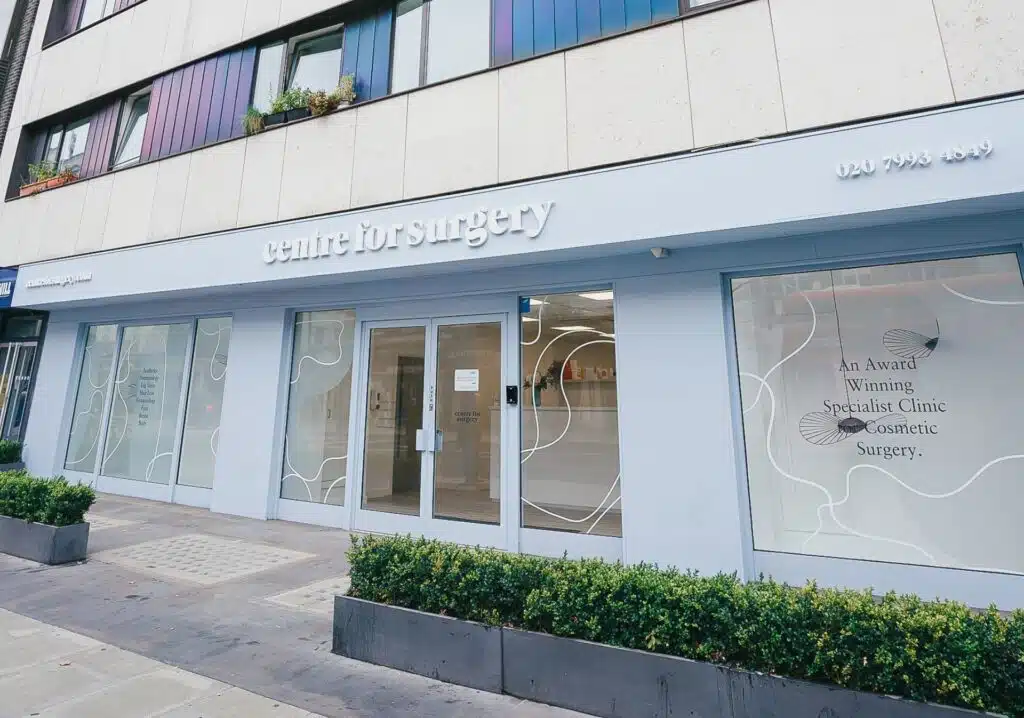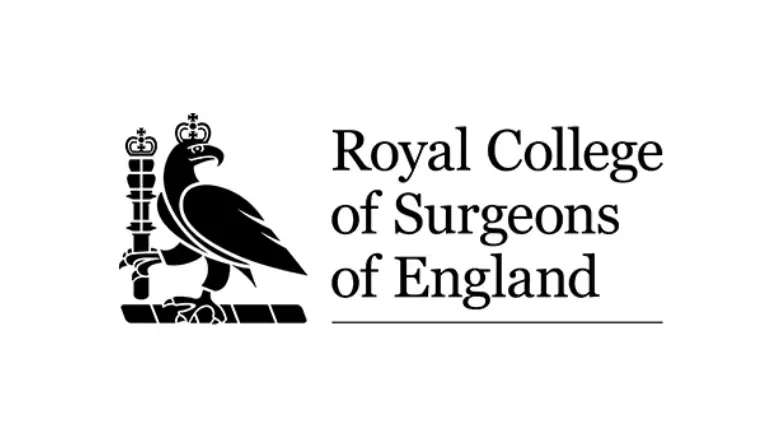Despite being a procedure that is virtually never talked about, labiaplasty surgery is one of the most commonly performed procedures in the UK. In many cases, certain gynaecological concerns affecting women are often viewed with a degree of stigma. Our treatment approach at Centre for Surgery is to try and remove a lot of these unnecessary barriers, which lead many women to suffer in silence. Labiaplasty is also known as labia reduction and encompasses several different procedures to alter the structure of the female external genitalia for aesthetic and/or functional benefit.
All of us have certain physical features that differentiate us from one another. These could be aspects such as hair colour, nose shape, or breast size, and this is often the case even with identical twins. The same principle also applies to the appearance of the female external genitalia, which differs significantly from one person to another as part of a normal spectrum of normality.
Although many women are completely happy with the appearance of their labia, many are concerned, and this can lead to a loss of confidence.
RELATED: Labiaplasty FAQs – Q&A about Labia Reduction
Is labiaplasty a common procedure?
If having excessively large labia has been a source of concern for you, you may have heard of the labiaplasty procedure as part of your research online. The labiaplasty procedure consists primarily of reducing the size and or reshaping the inner lips of the vulval region. These are also known as the labia minora. The most common type of labiaplasty procedure is known as labia minora reduction.
The presence of excessively large or abnormally shaped labia, which may or may not be asymmetrical, can be a significant cause of concern for many women. Excessively enlarged or elongated labia can be a source of discomfort when carrying out physical exercise or cause pain and discomfort during sexual intercourse, and even certain types of clothing may be avoided due to the potential for causing rubbing and discomfort. Many women may develop pain and discomfort from tampon use or even from simply walking as part of everyday activities.
In the most severe cases, even straightforward activities of daily living can be affected by significant pain or discomfort. Many women suffer in silence without reporting their symptoms to a doctor. The result can be devastating for many women who may go on to avoid intimate relationships due to the fear of embarrassment with the appearance of their labia.
According to the latest research from the European Society of Aesthetic Gynaecology, more women than ever before are choosing to have labia reduction surgery and not just to improve the appearance of the labia. With each year, the number of labiaplasty procedures has increased significantly due to the highly successful outcomes the procedure can produce. This has led to increasing social acceptance of the procedure due to the significant benefits it can bring to many affected women.
What does a labiaplasty procedure involve?
The labiaplasty procedure is a very safe and straightforward procedure when carried out with expert hands. Virtually all labiaplasty procedures can be carried out under local anaesthetic with or without oral sedation. The most common labiaplasty technique involves simple trimming of the extra redundant tissue of the labia minora, which are also known as the inner lips of the vulva.
Most labiaplasty surgery takes between 1 and 2 hours to carry out, depending on the complexity of the correction required. The recovery process after surgery is also very smooth and straightforward, with most women not even requiring prescription painkillers in the postoperative period. Patients who have only local anaesthetic for their labiaplasty can, in many cases, drive home after their procedure. However, if you have had any type of sedation or general anaesthetic, then you require a responsible adult escort to pick you up and drive you home, as you will still be quite drowsy after the procedure has finished.
Most women will find they need approximately 5 to 7 days of work and should avoid any strenuous exercise and sexual intercourse for at least four weeks. Our surgeons take care to use special absorbable stitches that do not require a separate postoperative visit for potentially painful suture removal. This is a big plus point for most women who are considering labiaplasty surgery.
How much does labia reduction surgery cost?
Most cosmetic surgery, including procedures like labiaplasty, is not covered by private medical insurance and is not carried out in the NHS. This means you will have to pay to have the procedure carried out by a reputable private healthcare provider such as Centre for Surgery in London. Centre for Surgery, the average cost of labiaplasty starts at £4000. You will receive an accurate quote once you have had a face-to-face consultation, where a full medical history and examination will be carried out to determine your suitability for labia minora reduction. We can also offer a full range of affordable finance plans with our finance partner, Chrysalis Finance. This means having labiaplasty surgery becomes a definite reality for many patients who previously would not have been able to afford the procedure.
Our doctors are accredited specialists in aesthetic gynaecology and are very committed to helping women concerned by either the appearance or function of their labia minora. We always try to make all our procedures accessible for as many patients as possible to help you reach your goals. This is why we always strive to offer in-depth consultations, and you are more than welcome to return for a follow-up consultation if you would like to learn more or if you are unsure about any aspect of the labiaplasty plastic procedure.
Comprehensive Guide to Labiaplasty Recovery: Your Questions Answered
What is the Recovery Timeline for a Labiaplasty Procedure?
The journey to full recovery after a labiaplasty can vary from person to person, but generally, most women achieve complete healing within six weeks. This period allows for the subsidence of any swelling, enabling you to return to your normal range of activities, including engaging in strenuous exercises. Following your surgeon’s advice closely during this time is crucial to ensure a smooth and effective healing process.
RELATED: How to Reduce Labiaplasty Swelling
When is it Possible to Resume Work Following a Labiaplasty?
Returning to work post-labiaplasty depends on the nature of your job. If your role is predominantly desk-based, you may find yourself ready to return to office work within the second week of recovery. However, if your job involves more physically demanding tasks, it may be prudent to wait until you have fully recovered, which could be up to six weeks, to ensure you do not compromise your healing.
Will I Experience Pain During or After Labiaplasty Surgery?
One of the common concerns about labiaplasty is the potential for pain. However, the procedure itself is performed under local or general anaesthetic or sedation, ensuring you feel no pain during the surgery. Post-operatively, some discomfort is normal as your body goes through the healing process. This discomfort can typically be managed effectively with pain medication, as advised by your surgeon.
Is Urination Painful Following Labiaplasty Surgery?
It’s not uncommon to experience a burning sensation while urinating after labiaplasty surgery, particularly at the incision sites. This discomfort can generally be alleviated by using a spray bottle filled with cool water during urination to help soothe the area and reduce pain.
How Soon After Labiaplasty Can I Walk?
Mobility after labiaplasty can be expected to return roughly 8 hours following the procedure, though this can vary based on the extent of the surgery. It’s important to gently reintroduce movement to avoid any strain on the treated area and facilitate proper healing.
What is the Advised Waiting Period for Sexual Activity After Labiaplasty?
A common question post-labiaplasty concerns the resumption of sexual activities. It is recommended to abstain from sexual intercourse for the initial 6 to 8 weeks following your surgery. This precaution helps avoid unnecessary pressure on the vagina, which could hinder the healing process or alter the outcome of the surgery. Once this period has passed, and with your surgeon’s approval, you should be able to safely resume sexual activities.
RELATED: How Soon Can I Have Sex After Labiaplasty?
Labiaplasty at Centre for Surgery
Our surgeons carry out in excess of 100 labiaplasty procedures of all types each year, including labia minora reduction, which is the most common type of labiaplasty procedure. This means our surgeons are some of the most skilled and experienced surgeons in the UK in this type of surgery.
Patients considering labia reduction in London should give us a call to book a consultation directly with the surgeon. Centre for Surgery is home to specialists in all types of gynaecological procedures, including labiaplasty and writes extensively on safety in labiaplasty in national and international research journals. This means that prospective patients can make a highly informed decision on surgery, knowing that they have the best information and advice from a top labiaplasty specialist in London.
If you have made up your mind and are keen to consider what the benefits of labia reduction in London can mean for you, give us a call today and speak to one of our friendly and knowledgeable patient care coordinators to book a consultation at our Baker Street clinic.











